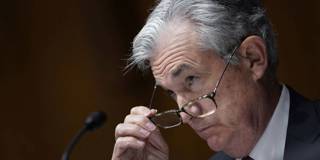The US Federal Reserve's long-awaited new monetary-policy strategy should probably not serve as a global benchmark. Other central banks should think long and hard before they consider emulating the Fed, for four technical and political reasons.
FRANKFURT – To say that the US Federal Reserve is the world’s most important central bank is to state the obvious. The Fed’s monetary-policy decisions affect market interest rates worldwide, and no central bank can ignore them without risking unwelcome movements in its own currency’s exchange rate.
Moreover, the Fed’s leadership – for good or ill – extends beyond current monetary policy. To be sure, the Fed was not a global frontrunner in designing a monetary-policy strategy – remember how long it took to adopt inflation targeting officially – or in making its decisions and communications more transparent. But make no mistake: the Fed also plays a leading role in global discussions of strategic central-banking issues.
No wonder, then, that central bankers eagerly awaited the outcome of the Fed’s recent review of monetary policy strategy, tools, and communications.” But the Fed’s new strategy, announced in late August, should probably not serve as a global benchmark for the conduct of monetary policy.

FRANKFURT – To say that the US Federal Reserve is the world’s most important central bank is to state the obvious. The Fed’s monetary-policy decisions affect market interest rates worldwide, and no central bank can ignore them without risking unwelcome movements in its own currency’s exchange rate.
Moreover, the Fed’s leadership – for good or ill – extends beyond current monetary policy. To be sure, the Fed was not a global frontrunner in designing a monetary-policy strategy – remember how long it took to adopt inflation targeting officially – or in making its decisions and communications more transparent. But make no mistake: the Fed also plays a leading role in global discussions of strategic central-banking issues.
No wonder, then, that central bankers eagerly awaited the outcome of the Fed’s recent review of monetary policy strategy, tools, and communications.” But the Fed’s new strategy, announced in late August, should probably not serve as a global benchmark for the conduct of monetary policy.